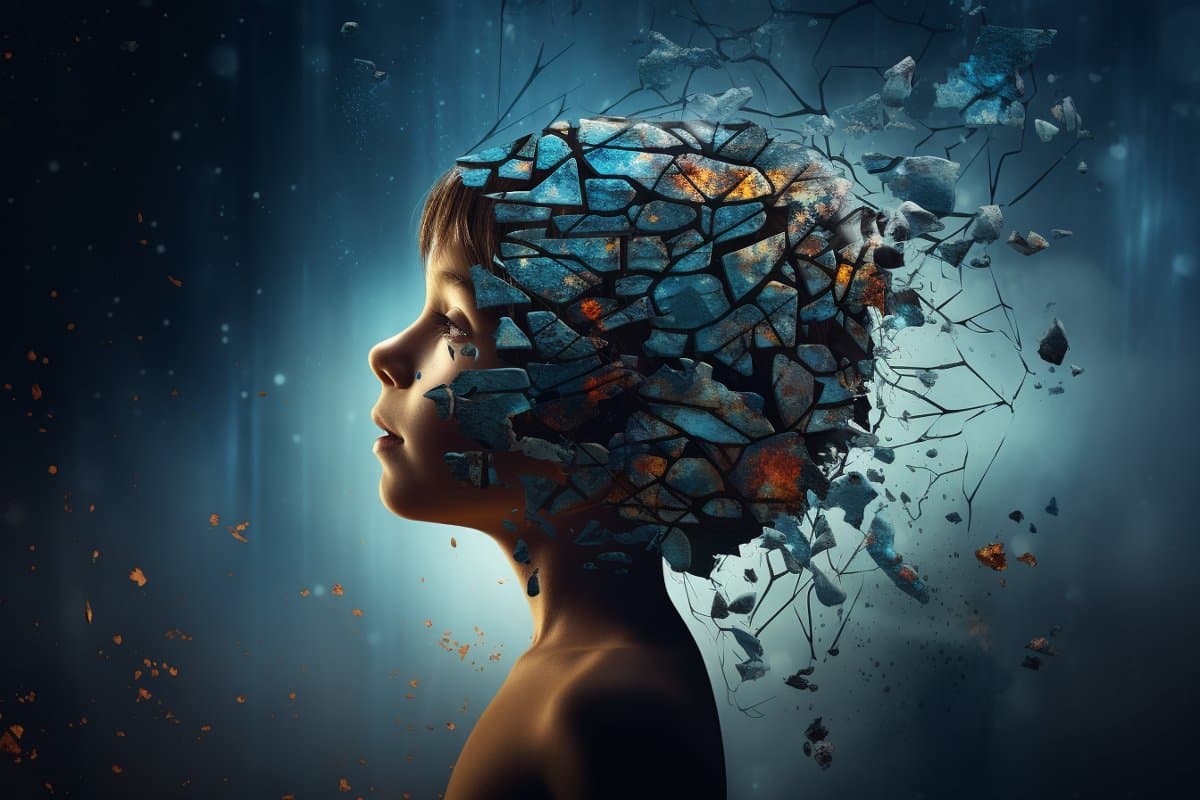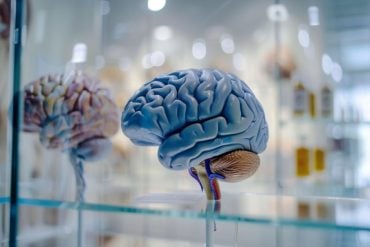Summary: Researchers shed light on the profound effects of childhood trauma on brain development, uncovering significant disruptions in neural networks critical for self-awareness and problem-solving.
By leveraging AI to analyze brain scans, the research highlights how early abuse rewires pathways associated with emotions, empathy, and bodily understanding, potentially leading to difficulties in learning and decision-making.
The study, which re-examined fMRI scans of over 580 children, points towards the need for treatments that not only address trauma triggers but also focus on the broader cognitive and emotional disruptions caused by trauma. This opens new avenues for therapies aimed at rewiring affected neural circuits and restoring a healthier sense of self and relational capacity.
Key Facts:
- The study identifies disruptions in the default mode (DMN) and central executive networks (CEN) of the brain, crucial for self-perception and cognitive processing, in children who have experienced trauma.
- Dr. Klabunde’s research, using AI to re-analyze brain scans, suggests these children struggle with internal processing, impacting their emotions, empathy, and learning abilities.
- The findings advocate for a holistic treatment approach that addresses the comprehensive effects of trauma on the brain, aiming to improve mental health and relational outcomes for affected children.
Source: University of Essex
A brain study of childhood trauma has revealed how it affects development and rewires vital pathways.
The University of Essex study—led by the Department of Psychology’s Dr. Megan Klabunde—uncovered a disruption in neural networks involved in self-focus and problem-solving.
The findings are published in the journal Biological Psychiatry: Cognitive Neuroscience and Neuroimaging.

This suggests that those under age 18 who have experienced abuse will likely struggle with emotions, empathy and understanding their bodies. Difficulties in school caused by memory, hard mental tasks and decision making may also emerge.
Dr. Klabunde’s novel research used AI to re-examine hundreds of brain scans and identify patterns. It is hoped that the research will help hone new treatments for children who have endured mistreatment. This could mean that therapists could focus on techniques to rewire these centers and rebuild patients’ sense of self.
Dr. Klabunde said, “Currently, science-based treatments for childhood trauma primarily focus on addressing the fearful thoughts and avoidance of trauma triggers. This is a very important part of trauma treatment. However, our study has revealed that we are only treating one part of the problem.
“Even when a child who has experienced trauma is not thinking about their traumatic experiences, their brains are struggling to process their sensations within their bodies. This influences how one thinks and feels about one’s ‘internal world’ and this also influences one’s ability to empathize and form relationships.”
Dr. Klabunde reviewed 14 studies involving more than 580 children for the research, which re-examined functional magnetic resonance imaging (fMRI) scans. This procedure highlights blood flow in different centers, showing neurological activity.
The study discovered a marked difference in traumatized children’s default mode (DMN) and central executive networks (CEN)—two large scale brain systems. The DMN and the posterior insula are involved in how people sense their bodies, their sense of self and their internal reflections.
New studies are finding that the DMN plays an important role in most mental health problems—and may be influenced by experiencing childhood trauma. The CEN is also more active than in healthy children, which means that children with trauma histories tend to ruminate and relive terrible experiences when triggered.
Dr. Klabunde hopes this study will be a springboard to find out more about how trauma affects developing minds.
She said, “Our brain findings indicate that childhood trauma treatments appear to be missing an important piece of the puzzle.
“In addition to preventing avoidance of scary situations and addressing one’s thoughts, trauma therapies in children should also address how trauma impacts on one’s body, sense of self, emotional/empathetic processing, and relationships. This is important to do so since untreated symptoms will likely contribute to other health and mental health problems throughout the lifespan.”
Dr. Klabunde worked with Dr. Anna Hughes, also from the Department of Psychology, and Masters student Rebecca Ireton on the study.
About this neurodevelopment and childhood trauma research news
Author: Megan Klabunde
Source: University of Essex
Contact: Megan Klabunde – University of Essex
Image: The image is credited to Neuroscience News
Original Research: Open access.
“An FMRI Meta-Analysis of Childhood Trauma” by Megan Klabunde et al. Biological Psychiatry: Cognitive Neuroscience and Neuroimaging
Abstract
An FMRI Meta-Analysis of Childhood Trauma
Background
Traumatic experiences during childhood significantly impact the developing brain and contributes to the development of numerous physical and mental health problems. A comprehensive understanding of the functional impairments within the brain associated with childhood who trauma histories, however, is unknown. Previous fMRI meta-analytical tools required homogeneity in task types and the clinical populations studied, thus, preventing the comprehensive pooling of brain-based deficits present in children who have trauma histories. We hypothesize that the use of the novel data-driven Bayesian author-topic model approach to fMRI meta-analyses will reveal deficits in brain networks spanning fMRI task types in children with trauma histories.
Methods
We are the first known study to use the Bayesian author-topic model approach to fMRI meta-analyses within a clinical population. Using PRISMA guidelines, we present data-driven results obtained by combining activation patterns across heterogeneous tasks from 1,428 initially screened studies, thus combining data from 14 studies meeting study criteria (285 children with trauma histories; 297 healthy control children).
Results
Altered brain activity is revealed within two clusters in children with trauma histories as compared to control children: the Default Mode/Affective Network/posterior insula and Central Executive Network. Our identified clusters were associated with tasks pertaining to cognitive processing, emotional/social stress, self-referential thought, memory, unexpected stimuli and avoidance behaviours in youth who have experienced childhood trauma.
Conclusions
Our results reveal disturbances in children with trauma histories within the modulation of DMN and CEN networks – but not the salience network- irrespective of also presenting post-traumatic stress symptoms.







